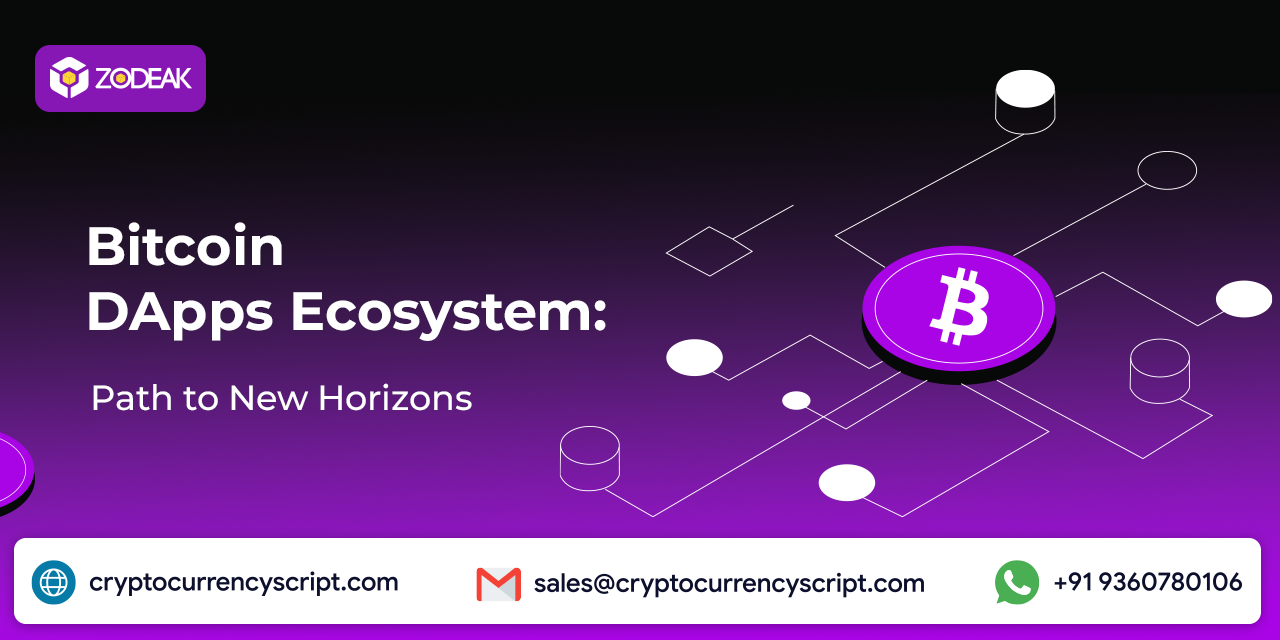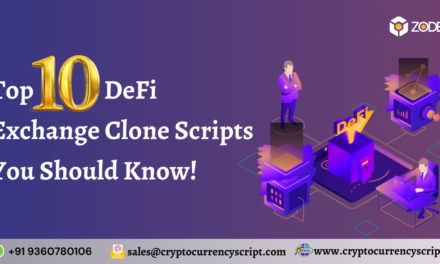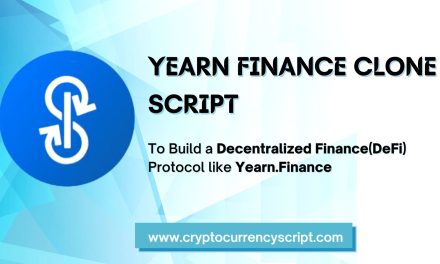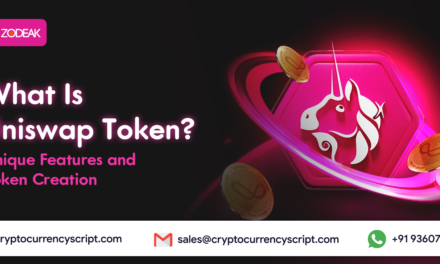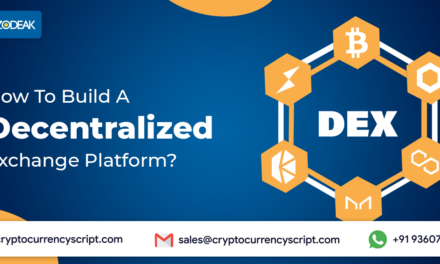As we all know, today’s crypto evolved from the inception of Bitcoin, right? It was primarily created to overcome the limitations of fiat currencies, facilitating money transfers (P2P), store values, etc. Although Bitcoin began as a decentralized digital currency, the Bitcoin DApp ecosystem has opened up the possibility of various applications beyond just transactions
While Ethereum is widely recognized as the leading platform for DApps, Bitcoin has its unique ecosystem for decentralized applications. Let’s delve into what it entails, why choose them, and how DApps function on Bitcoin.
What are Bitcoin DApps?
Bitcoin DApps are software applications that run on a blockchain network instead of a centralized server. They are unique in that they don’t have a single point of control or failure, which makes them resistant to censorship and tampering. This is because they are built on a distributed network of nodes that work together to maintain the integrity of the blockchain and the applications that run on it.
One of the main benefits of Bitcoin DApps is that they are open-source and transparent, meaning that anyone can view the code and verify that it’s functioning as intended. Additionally, they are often more secure than traditional applications because they use cryptographic protocols to ensure the confidentiality and integrity of data.
Why Choose the Bitcoin Ecosystem for DApps?
The Bitcoin DApp ecosystem presents an array of unique benefits and opportunities to developers and users alike. Here are some reasons why developers and users might choose Bitcoin for decentralized applications:
Security
Bitcoin is the most established and secure blockchain, with a long track record of reliability. The decentralized nature of its network, supported by a large number of miners and nodes, makes it resistant to attacks and censorship.
Decentralization
As we know, Bitcoin’s decentralization is at the core of its design. The absence of a central authority provides greater trust and transparency, which is appealing to those who prioritize these qualities in decentralized applications.
Interoperability
The emergence of sidechains and layers like RSK, Liquid, and Lightning Network allows developers to create DApps with more advanced functionalities while retaining interoperability with Bitcoin’s primary network. This can open up opportunities for cross-chain interactions and enhance network effects.
Community and Recognition
Bitcoin has a large and active community of developers, enthusiasts, and supporters. This strong community presence can offer support, knowledge sharing, and collaboration opportunities, fostering innovation within the Bitcoin DApp ecosystem.
Store of Value
Bitcoin’s recognition as a store of value and digital gold can be advantageous for DApps involving asset tokenization, digital collectibles (like Ordinals), or other applications where users might prefer to transact in a stable and widely accepted cryptocurrency.
Market Integration
Bitcoin has broad recognition and is widely accepted on exchanges, making it easier to integrate into financial applications and DApps. This broad acceptance can increase the attractiveness of using Bitcoin-based DApps for various purposes, including DeFi, tokenization, or cross-border transactions.
Unique Features
Bitcoin’s unique features, like Ordinals, allow for innovative applications such as NFTs and unique inscriptions. This provides new creative opportunities for developers and users within the Bitcoin ecosystem.
These factors make the Bitcoin DApp ecosystem an attractive choice for those looking to develop or use decentralized applications. Depending on the use case and specific requirements, the Bitcoin DApp ecosystem can offer unique benefits compared to other blockchain platforms.
Now, let’s explore how Bitcoin’s decentralization of operations manifests in various contexts, particularly in the blockchain realm.
Blockchain and Cryptocurrency
In decentralized blockchains, no single entity controls the network. Instead, consensus mechanisms like Proof of Work (PoW) or Proof of Stake (PoS) validate the transactions and maintain the integrity of the ledger.
The blockchain is a distributed ledger where all nodes in the network have a copy. This redundancy ensures that the network is resilient to single points of failure and censorship. In a decentralized environment, anyone can participate without requiring approval from a central authority. This openness fosters innovation and inclusivity.
Decentralized Applications (DApps)
Decentralized applications are built on blockchain technology, often focusing on peer-to-peer interactions and autonomy. Here’s how decentralization influences DApps:
DApps rely on smart contracts, which are self-executing contracts with terms directly written into code. This decentralization of contract enforcement reduces the need for intermediaries.
Many DApps have decentralized governance mechanisms. Where token holders can propose and vote on changes to the application. Thus ensuring that decision-making power is spread across the community. In decentralized platforms, users typically have more control over their data and digital assets, reducing reliance on centralized service providers.
Decentralized Finance (DeFi)
DeFi platforms offer traditional financial services like lending, borrowing, and trading without intermediaries. This decentralization opens up financial services to a broader audience.
DeFi platforms often allow for interoperability between different blockchains and DApps, enabling seamless movement of assets and data. In many DeFi projects, the community has a say in the direction and development of the platform, promoting decentralized operations.
Decentralized Data Storage and Processing
Projects like IPFS and Filecoin provide decentralized file storage solutions, reducing reliance on centralized servers and enhancing resilience. Decentralized edge computing distributes processing power across multiple nodes, reducing the load on centralized servers and improving scalability.
Decentralized Autonomous Organizations
In a DAO, governance is a decentralized exchange script, with decisions made through community voting and proposals. This structure enables a more democratic approach to decision-making. DAOs often use governance tokens, giving holders a voice in the organization’s direction.
In a way, the Bitcoin DApp ecosystem’s future seems promising, as it continues to evolve with innovative technologies and growing interest in the crypto market. Exciting prospects are on the horizon, including advancements in smart contracts, layer 2 solutions, DeFi, NFTs, and DAOs. These new developments are expanding Bitcoin’s use cases, attracting a broader range of developers and users, and contributing to a diverse ecosystem.

